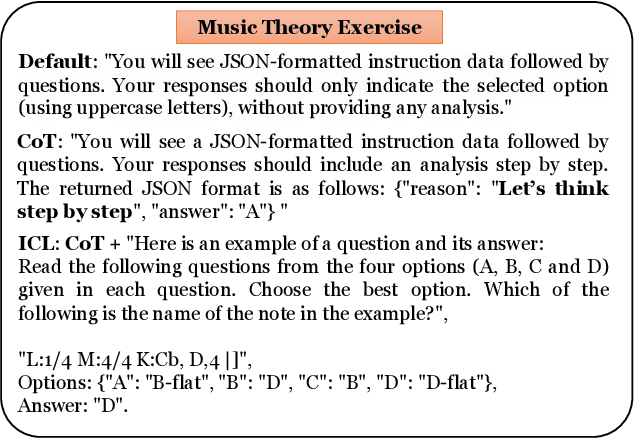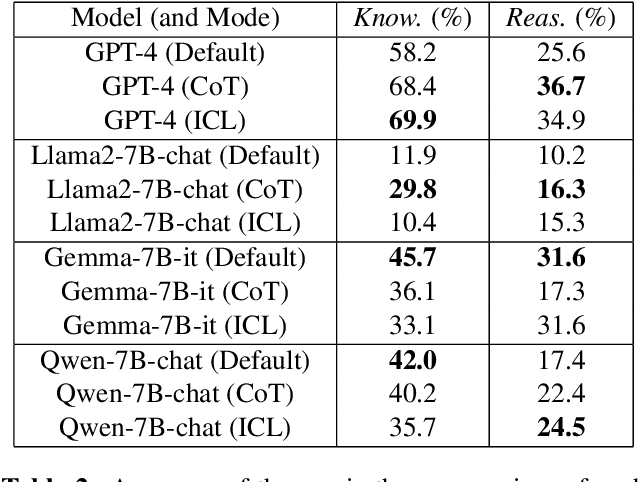Can LLMs "Reason" in Music? An Evaluation of LLMs' Capability of Music Understanding and Generation
Paper and Code
Jul 31, 2024



Symbolic Music, akin to language, can be encoded in discrete symbols. Recent research has extended the application of large language models (LLMs) such as GPT-4 and Llama2 to the symbolic music domain including understanding and generation. Yet scant research explores the details of how these LLMs perform on advanced music understanding and conditioned generation, especially from the multi-step reasoning perspective, which is a critical aspect in the conditioned, editable, and interactive human-computer co-creation process. This study conducts a thorough investigation of LLMs' capability and limitations in symbolic music processing. We identify that current LLMs exhibit poor performance in song-level multi-step music reasoning, and typically fail to leverage learned music knowledge when addressing complex musical tasks. An analysis of LLMs' responses highlights distinctly their pros and cons. Our findings suggest achieving advanced musical capability is not intrinsically obtained by LLMs, and future research should focus more on bridging the gap between music knowledge and reasoning, to improve the co-creation experience for musicians.
 Add to Chrome
Add to Chrome Add to Firefox
Add to Firefox Add to Edge
Add to Edge